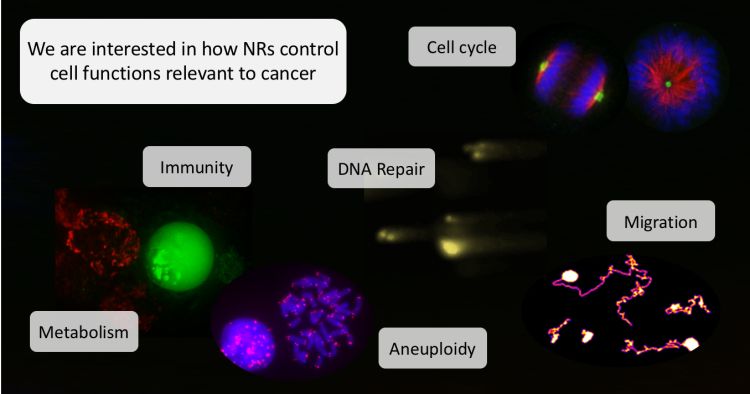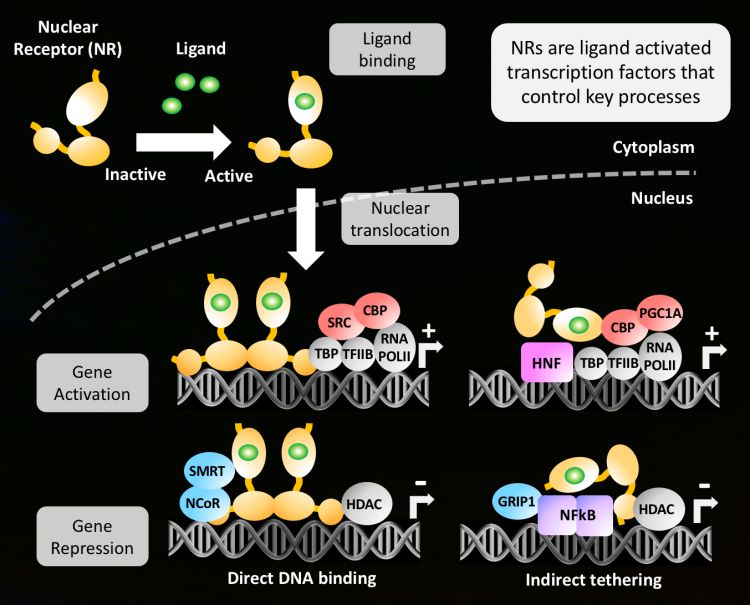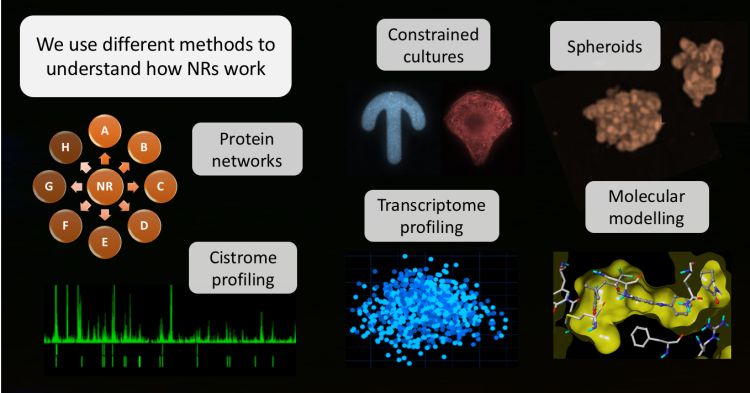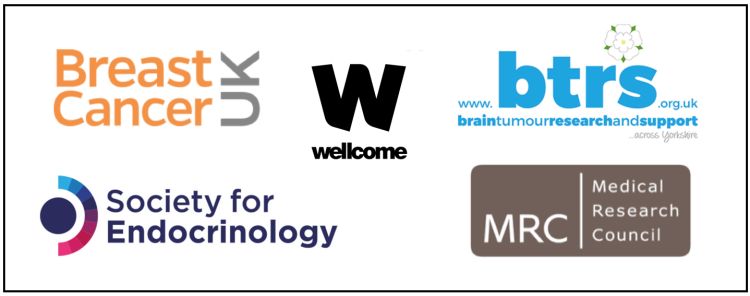
Dr Laura Matthews
- Position: University Academic Fellow
- Areas of expertise: Nuclear Receptors; Transcriptional Networks; Brain Cancer; Breast Cancer; Chemoresistance; Radioresistance; Immunotherapy
- Email: L.C.Matthews@leeds.ac.uk
- Phone: +44(0)113 343 8449
- Location: 5.16 Wellcome Trust Brenner Building, St James's University Hospital
- Website: Brain Cancer Research Group | Breast Cancer Research Group | Googlescholar | Researchgate
Profile
I graduated from the University of Manchester with a BSc in Neuroscience and began a PhD in Endocrine Sciences Research Group under the supervision of Professors Melissa Westwood and Michael Taggart.
After completing my PhD I moved to the laboratory of Professor David Ray in the Centre for Molecular Medicine at the University of Manchester. As a post-doctoral research associate I was awarded a Career Development Grant from the Society for Endocrinology in 2009, then a University of Manchester Stepping Stones Fellowship in 2010.
I moved to the University of Leeds in 2016 under the mentorship of Professors Graham Cook and Paul Stewart.
Research interests
I lead the Nuclear Receptor research group. My research investigates the roles of Nuclear Receptors (NRs) in health and disease, with a particular focus on NR function in cancer.

NRs are ligand-regulated transcription factors that are activated by hormones, lipid-soluble factors and metabolites. Upon ligand binding, NRs undergo a conformational switch which changes the protein interaction surface, exposing nuclear localization signals and driving translocation into the nucleus. Once in the nucleus NRs can bind chromatin directly or tether to other DNA bound transcription factors, then recruit transcriptional coregulators and chromatin remodelers to modulate gene transcription – and in turn bring about changes in cell function. NRs are therefore powerful sensors of the cellular environment.

As NRs are master regulators of cell fate, metabolism and immune function, it is not surprising that most types of cancer have altered NR activity. NRs are ligand-activated transcription factors, and so their endogenous ligands provide the perfect template to design high affinity synthetic NR modulators, which makes them tractable drug targets for cancer therapy. Indeed, approximately 30% of all new drug leads target NRs. Laura’s research aims to unravel the complex mechanisms by which NRs mediate their cellular effects, define how changes in NR function drive various cancers, and also how NRs can be better targeted to treat cancer – particularly in aggressive Brain (Glioblastoma) and Breast (Triple Negative) cancers.

Research group
- Fiona Leslie, PhD (with Graham Cook and Freek Van Eeden)
- Freya Leif, PhD (with Chris Twelves, Val Speirs and Carlo Palmieri)
- Alex Kilvington, PhD (cosupervisor to Steve Griffin)
- Muna Al-Jabri, PhD (cosupervisor to Lucy Stead and Tom Hughes)
- Hanadi Qashqari, PhD (with Graham Cook)
- Mengjiao Xia, PhD (cosupervisor to Peter Laslo)
- Hessa Akram, MRes (with Graham Cook)
- Mengfan Xu, PhD (cosupervisor to James Thorne and Tom Hughes)
- Noura Alzamel, PhD (cosupervisor to Fiona Errington-Mais and Victoria Jennings)
Alumni
- Kathryn McGinnis, PhD awarded 2020, Research Fellow until 2021
- Rebecca Prince, MRes awarded 2021
- Molly Horsfield, MSc awarded 2021
- Somia Elborawi, MSc awarded 2021
- Anna Nicholls, MRes awarded 2020
- Hannah Taylor, MSc awarded 2020
- Olakunle Akanji, MSc awarded 2019
- Alex Schofield, BSc awarded 2019
- Sophie Williams, BSc awarded 2019
- Stephen Kershaw, PhD awarded 2018
- Helena Bean, MSc awarded 2018
- Pauline Pfänder, Visiting Erasmus student 2018
- Lauren Roberts, MSc awarded 2017
- Carolin Sauer, BSc awarded 2017
- Giorgio Caratti, PhD awarded 2017
- Anna Mannion-Jones, MPhil awarded 2014
- Nan Yang, MD awarded 2013
- David Morgan, PhD awarded 2013
- Peter Trebble, PhD awarded 2013
Funding
Ongoing research projects are funded by MRC, Wellcome Trust, Breast Cancer UK, the Society for Endocrinology and Brain Tumour Research and Support

Student education
I teach on numerous BSc, MRes and MSc modules as a lecturer, tutor or research project supervisor. I also supervise undergraduate summer placement students and research interns. Please contact me directly for details of how to apply.
Research groups and institutes
- Leeds Institute of Medical Research at St James's
- Cancer
- Brain Cancer Research Group
- Breast Cancer Research Group
- Infection and Immunity

